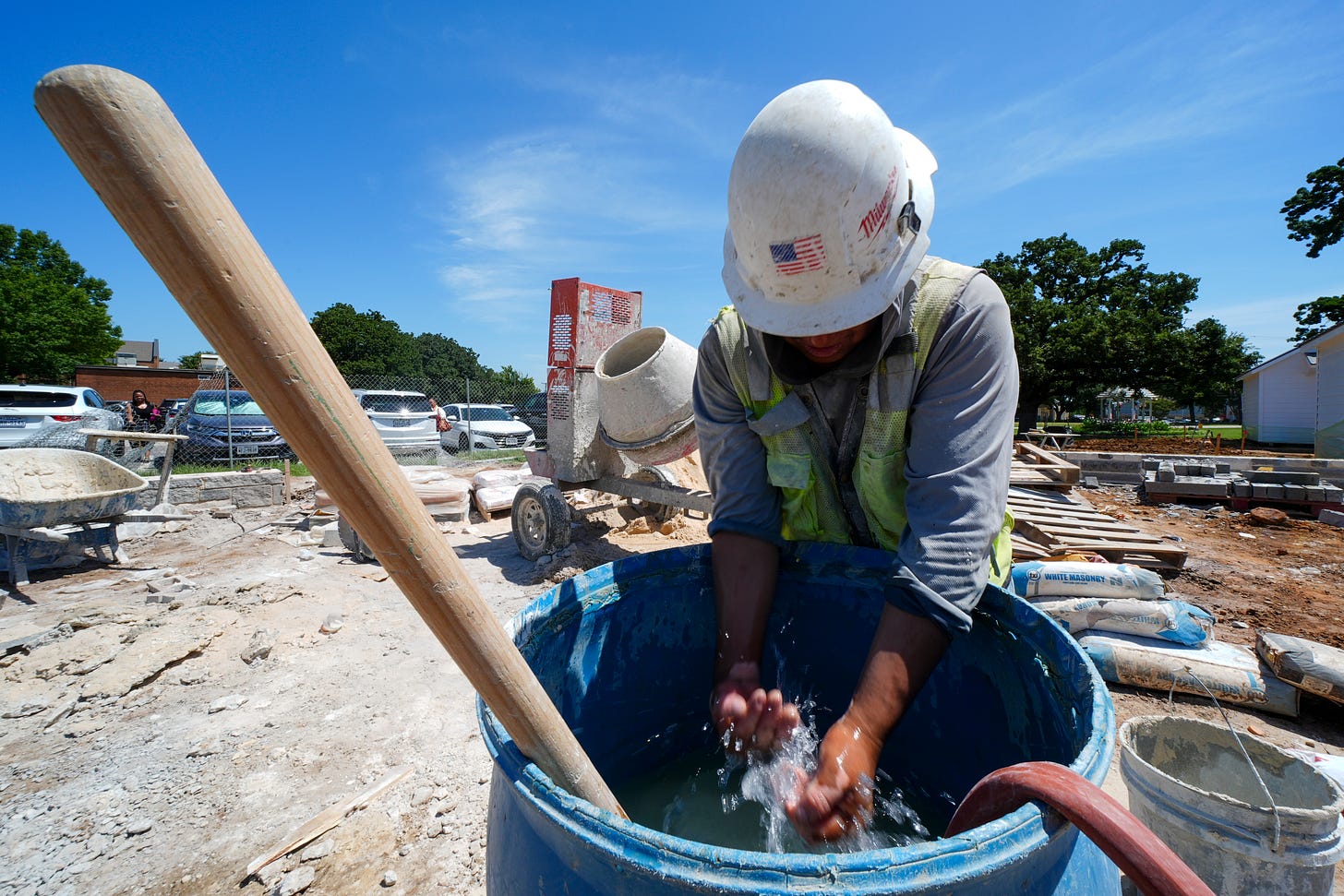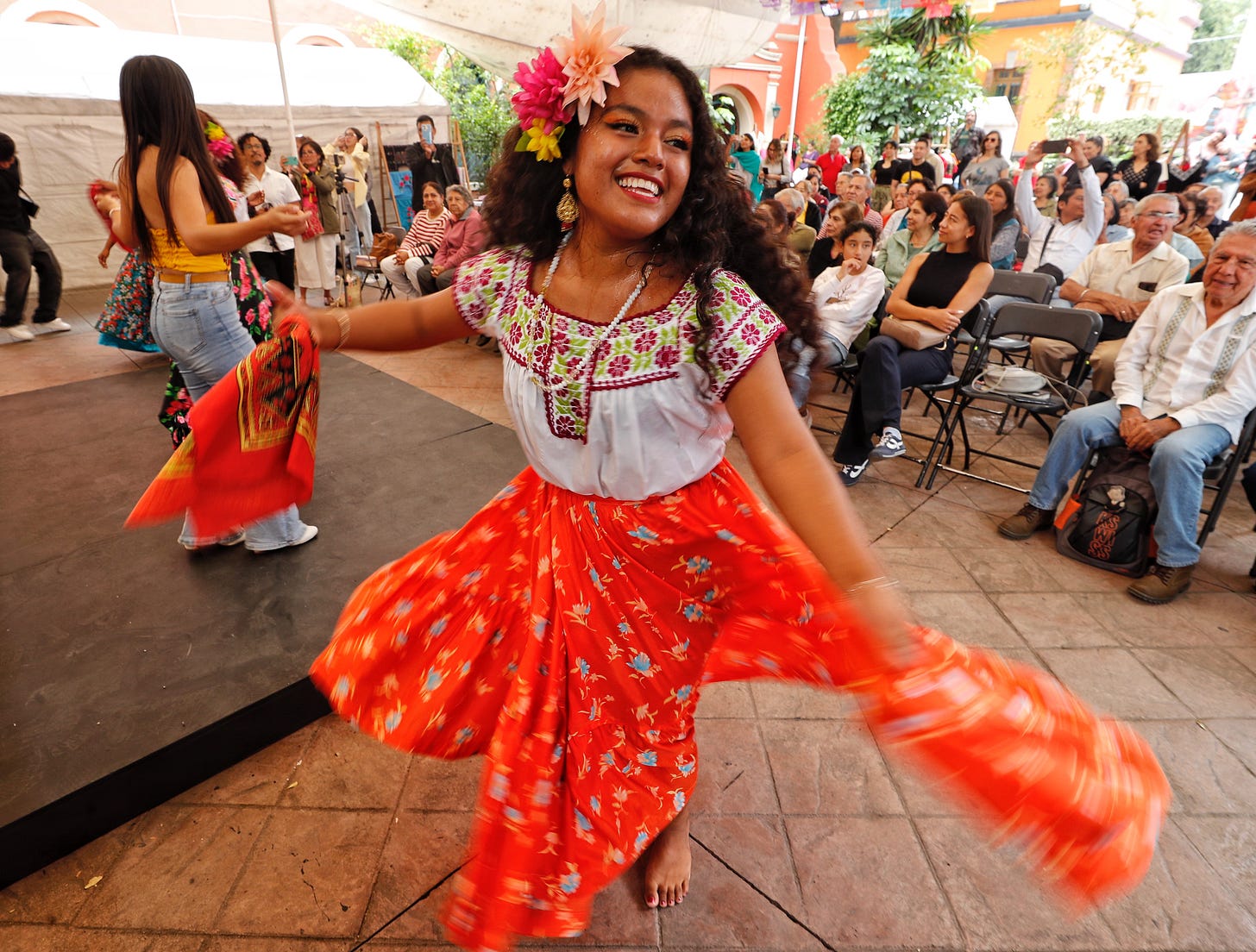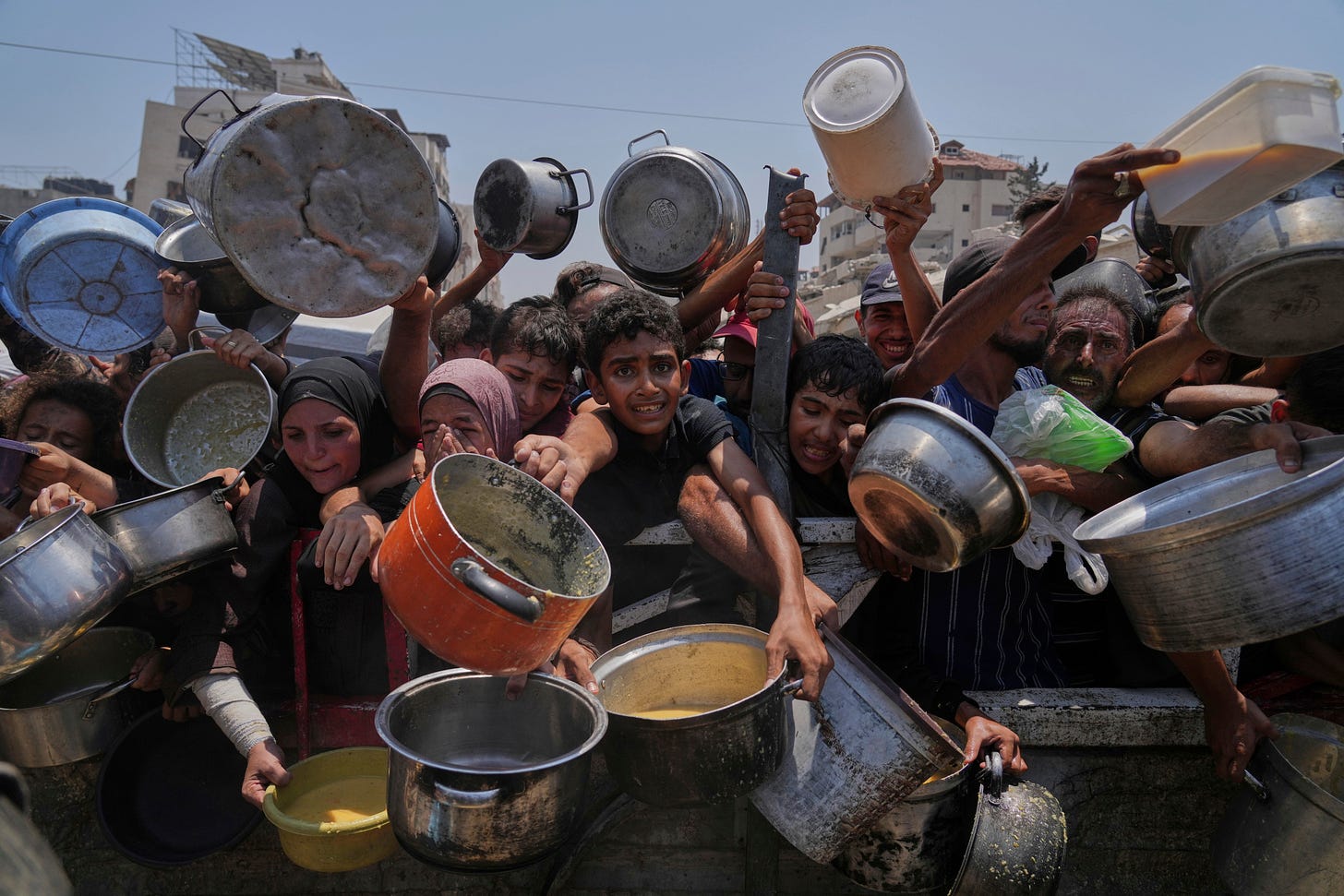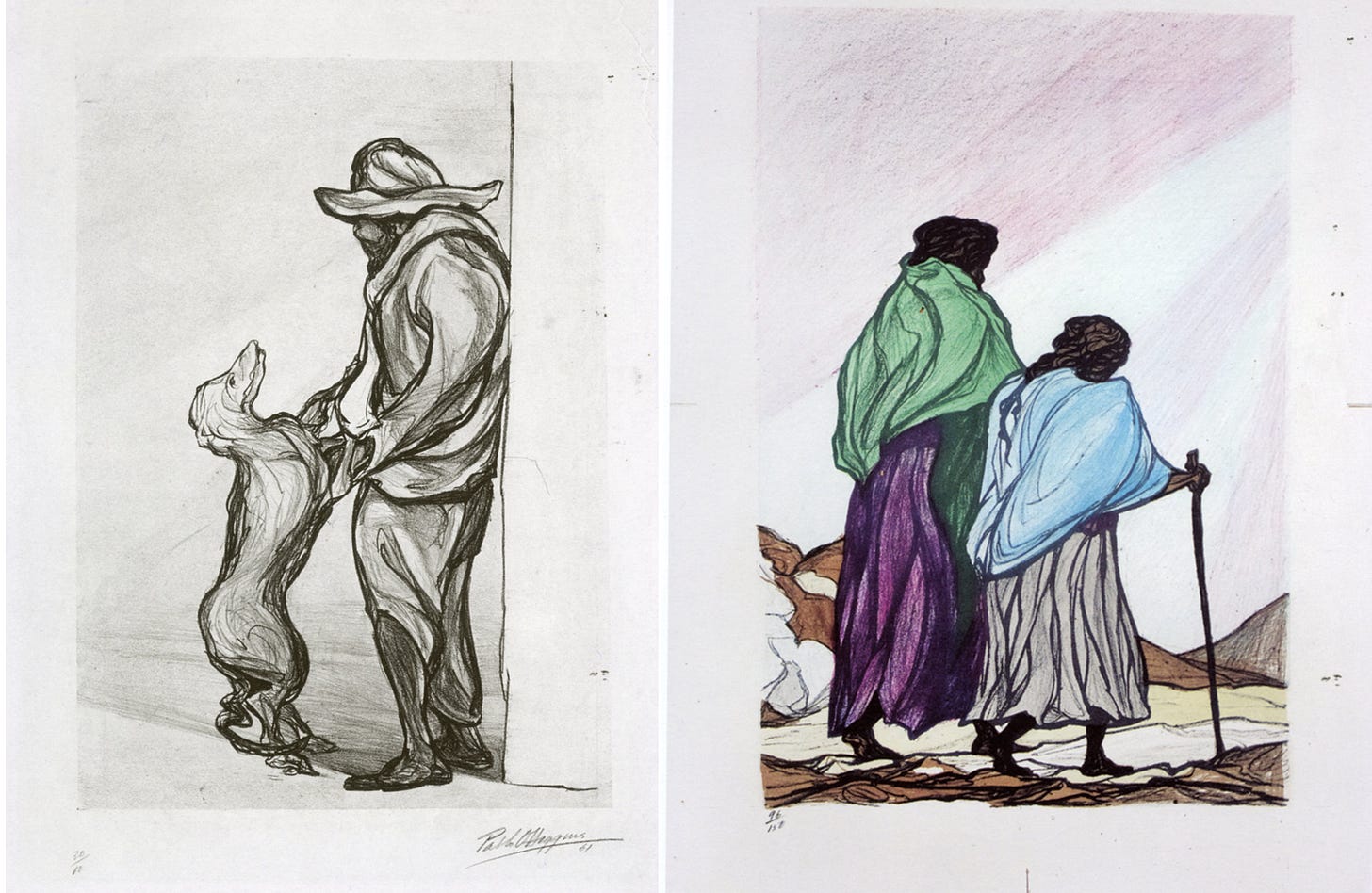01 Aug 25 | From L.A. to the Vatican: Defending Migrants
Also: Afro-Mexican women highlight their cultural contribution. An Indigenous woman takes on Trump. Growing outcry against the genocide in Gaza. How Pablo O’Higgins still challenges us today.
Lea La Jornada Internacional en español aquí.
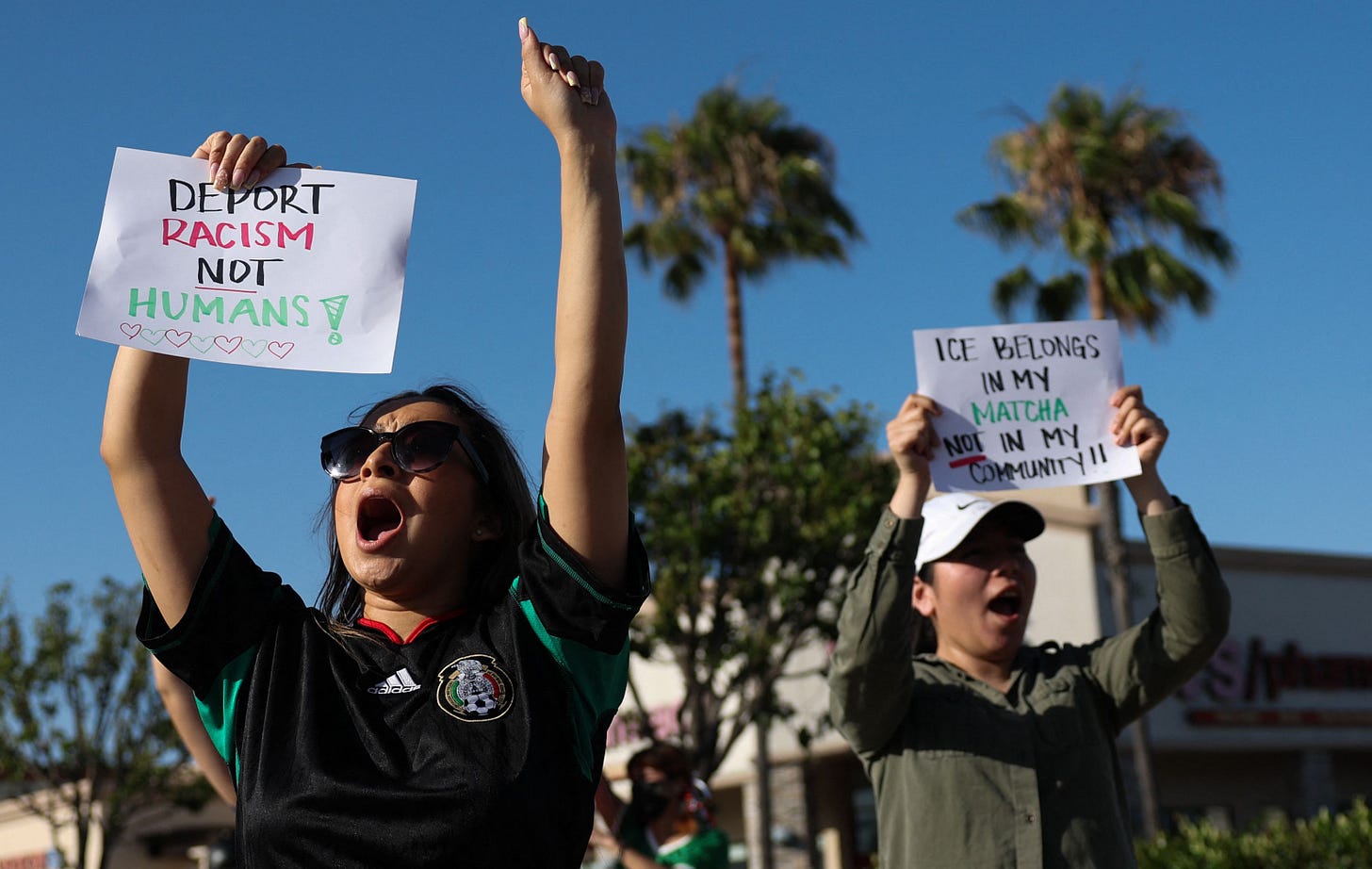
Lack of Proposals from the Democrats
President Donald Trump’s anti-immigrant policies are sparking resistance and protests across the United States and around the world, and are also causing some to question why opponents to these policies do not offer clear alternatives on both sides of the border.
“If Trump thought Los Angeles would bow down, he was wrong. Since the raids began, the children of immigrants have been leading the resistance to those actions,” write historians Miguel Tinker Salas and Victor Silverman. “This isn’t new. In L.A., and the U.S. more broadly, the children of immigrants have been key in creating social movements; in the 1930s, the ’70s, the ’80s, and again today.”
The authors describe how young people patrol neighborhoods, use social media to alert their communities to immigration raids, and record the actions of ICE agents to challenge their legality. “Many artists and social sectors have shown solidarity with immigrants—rappers, muralists, intellectuals, and writers included. This solidarity has led to mobilizations involving hundreds of thousands of people. Immigration agents, many of whom are the children of immigrants themselves, face widespread social rejection,” they write.
From Los Angeles to New York, a new generation with progressive values and deep roots in immigrant communities is becoming a decisive political force. The 2020s may well be remembered, like the 1930s, 1960s, and 1990s, as a turning point sparked by a new generation.
But the academics also point out that, in the face of the current crisis, the Democratic Party is once again noticeably absent and lacking clear proposals to address immigration. Time and again, Democratic leaders echo Trump’s policies, accepting the militarization of the border and the restriction of immigration, even as border crossings remain at historic lows. Their actions create the very conditions that Trump exploits in his hate-fueled campaign against immigrants.
But there is opposition. New data released this week show the growing economic power of Mexican workers in the U.S. Their total annual income in 2024 is projected to reach $373.7 billion, a 65% increase from a decade ago. Business leaders across the U.S. are increasingly speaking out against the arrests of migrant workers and are pushing hard for a change in policy.
Still, cruel and often brutal arrests, without charges or court authorization, continue. In July, staff from the Mexican consulates in Miami and Orlando visited the detention center known as “Alligator Alcatraz,” securing the release of two Mexican nationals from there a few days later. President Claudia Sheinbaum requested a full report on the conditions at the center and reiterated her demand that basic rights of Mexican migrants in the U.S. be respected. “The way they are being treated in these raids is painful,” she said.
However, the heavy workload and the limited resources of Mexican consulates are evident in the face of the massive anti-immigrant offensive. A Mexican senator reported that of the 53 Mexican consulates in the U.S., only 17 are fully staffed.
But abuse and violations of migrant rights are not limited to the United States. Analyst Jorge Durand argues that Mexico’s anti-extortion laws must also protect migrants. He notes Mexico’s global reputation for migrant kidnappings and extortion. “Crossing Mexico is worse than crossing the Darién jungle,” he says, due to the constant threat of organized crime. He suggests stricter regulations for financial services like Western Union, such as requiring security cameras and other tools, to help investigate extortion-related transfers and bring justice to victims.
The challenges facing migrants are deeply connected to broader societal problems: violence, poverty, and ecological devastation, said Archbishop Paul Richard Gallagher, the Vatican’s Secretary for Relations with States. During a visit to Mexico in July, have reaffirmed “the Holy See’s commitment to walk alongside the poor, migrants, Indigenous people, victims of violence, and all who live on the margins of society.” Similar words are echoed by migrant advocates, social justice groups, and even some politicians around the world. Whether governments are listening is another matter.
The Quote:
Political satire became obsolete when Henry Kissinger was awarded the Nobel Peace Prize.
-Tom Lehrer, the great musical satirist, passed away this week. His songs in the 1960s were part of the comedic work that is so necessary to reveal the United States.
In Case you Missed it
◻️ Afro-Mexican women: spotlighting centuries of cultural contributions. “We Afro-Mexican women have historically been discriminated against for our skin color, our origins, our gender, and our poverty. That holds us back. We must fight, because our rights are not guaranteed,” says poet and activist Aleida Violeta Vázquez Cisneros. Over 30 creators from Guerrero, Oaxaca, and Veracruz, along with allies, organized a month-long celebration to honor their community.
◻️ An Indigenous woman from Guerrero confronts Trump. Nobody would’ve imagined that Sandra, from the Nahua community in Guerrero, would one day stand up to one of the world’s most powerful human rights violators. But along with others, she has launched a major lawsuit against the Trump administration. If this collective suit succeeds, Sandra will go down in history as an example of the tenacious women of the Montaña region, a warrior since birth who never backed down from life’s challenges.
◻️ Four key causes of the global food crisis. In 2024, between 700 and 800 million people suffered from severe malnutrition. Environmentalist Víctor M. Toledo identifies four core issues driving the crisis: massive agrarian injustice; a distorted global food system; increased agrochemical use with environmental consequences; and the enormous amount of energy going into three-quarters of all food production operations.
◻️ Stop the genocide! Every day, La Jornada's front page carries a bold red headline pointing to reports, images, and commentary denouncing Israel’s genocide in Gaza. A sidebar titled “The Outcry Grows: Enough!” features quotes from global voices: Pope Francis, a UN Special Rapporteur, musician Roger Waters, even a far-right U.S. Congresswoman. “The U.S. and its allies created both the immediate and underlying conditions for this genocide by funding Israel’s rise as a colonial, expansionist power”, writes La Jornada in an editorial. In a separate column, Bárbara Zamora López notes that Mexico’s government “has taken a shockingly passive stance on the Gaza genocide”, a position that violates its own Constitution.
◻️ Military abuse: investigate and punish. Accusations that soldiers stole money and phones from three adolescents in Nuevo Laredo have revived concerns about abuse of power by the Mexican military. La Jornada calls for “a prompt and transparent investigation, and, if proven, the application of penalties under civil and military codes.”
◻️ Colombia: ‘Justice, at last.’ Former President Álvaro Uribe has been found guilty of committing procedural fraud and bribery to cover up his ties to paramilitary groups. “This marks a victory not just against impunity for a former head of state,” writes La Jornada, “but against the entire oligarchy that’s ruled Colombia with an iron fist for decades through manipulation of political, economic, and media power.”
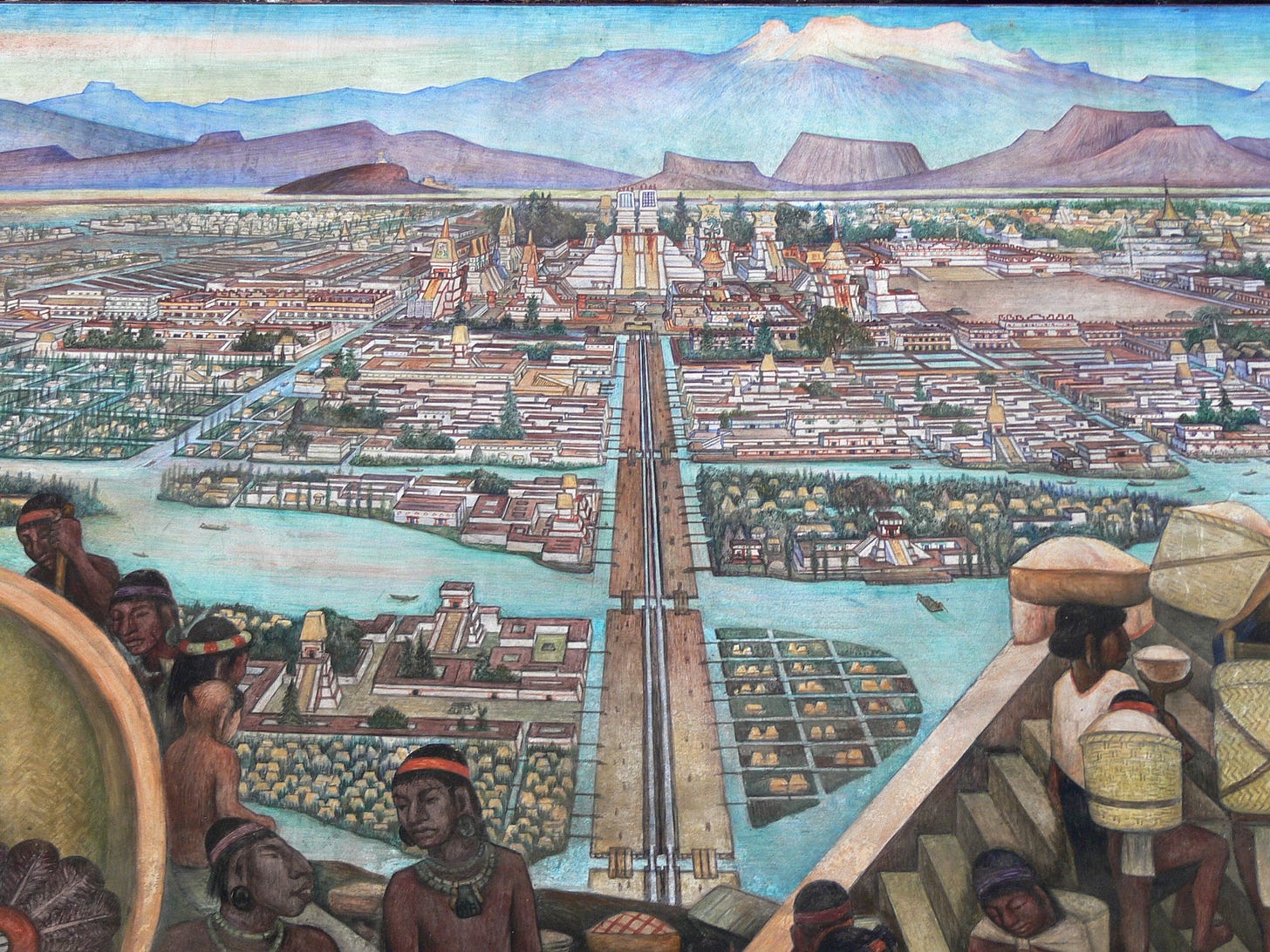
◻️ 700 years of Tenochtitlan/Mexico City. Tenochtitlan’s legacy “lives in the quiet resistance of the people, in the Nahuatl language still spoken, in the corn still planted, in traditional medicine, rituals, the names of our mountains, rivers, streets, and towns—in the name of our country: Mexico,” said President Sheinbaum at the official celebration of the city’s founding. For author Paco Ignacio Taibo, the celebration has a clear message: “We honor a city with an extraordinary history, and raise a basic issue: that this city was built through social struggle.”
◻️ Pablo O’Higgins: graphic art. O’Higgins’ work “always remains timely; its messages still call on us, as citizens, to take a stand on the social and political realities of Mexico and the world,” says Eduardo Espinosa Campos, curator of the exhibit Prints of Life and Struggle at the historic Postal Palace in Mexico City.
🎥 What We Are Watching
Celebration Nation is feeding hundreds of farmworker families in California. Many workers are afraid to even go out for groceries due to the ongoing raids.




